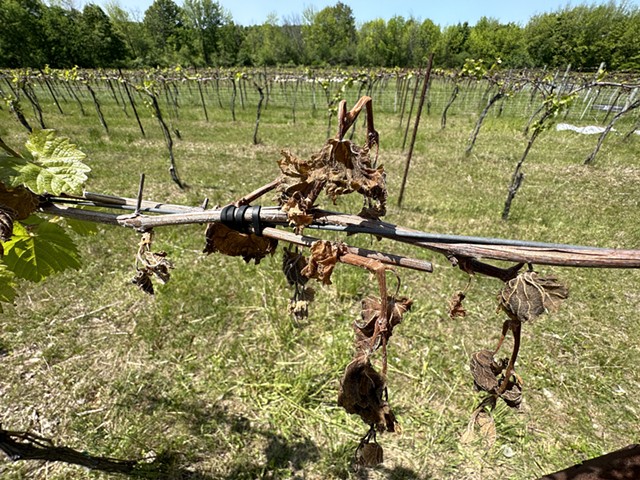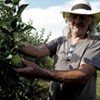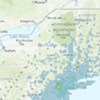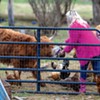click to enlarge 
- Courtesy of the Vermont Agency of Agriculture
- A damaged vine at Shelburne Vineyard
A late-season freeze is feared to have widely damaged spring crops across Vermont last week, dealing a major blow to the state's fruit growers.
"Time will really tell the impact," Vermont Agriculture Secretary Anson Tebbetts said. "But a lot of people are telling us this is a significant loss."
Temperatures plummeted across the Northeast during the overnight hours on May 17, with readings in the mid-20s throughout the Champlain Valley. Montpelier recorded a record low of 25 degrees, while Burlington tied its historic low of 28 degrees.
The hours-long cold snap came after many fruit crops — such as apples, grapes and blueberries — had bloomed. Experts say it's the worst spring freeze they've seen in decades.
“In my 25 years of working with fruit crops in Vermont, I have never seen frost or freeze damage this extensive," Terence Bradshaw, associate professor at the University of Vermont Extension Fruit Program, said in a press release on Tuesday. "The widespread nature of this event is unprecedented."
The full extent of the damage may not be known for several weeks, as some crops may recover enough to yield fruit.
Orchards could be hardest hit, as apple trees damaged by the frost are more likely to be a total loss for the season. Scott Farm Orchard in Dummerston told the
Keene Sentinel over the weekend that its entire crop may be lost.
"This has a devastating impact on so many levels," wrote Erin Robinson, the farm's resident orchardist,
in an Instagram post on Saturday. "The workers who rely on us to come here and work to support their families back home, the farm itself surviving, our beloved customers and community who love what we grow and get nourishment from our trees gifts, and the cider makers who use our fruit to make their magic. The ripples go far."
Vineyards may be able to salvage some crop, as grapes produce secondary shoots later in the season that usually yield some fruit, said Kendra Knapik, president of the Vermont Grape & Wine Council. But she feared that the roughly two dozen commercial vineyards across the state were still going to be hit with "some pretty big losses."
"It’s just a really sad week," Knapik said.
State officials on Monday toured Shelburne Vineyard,
one of Vermont's largest grape producers, to assess the damage. Ethan Joseph, head winegrower and vineyard manager, estimated that 50 percent of the crop was gone. "And that number could climb," he said. "We’re hoping it doesn’t, but we have to just see how everything unfolds."
The vineyard likely won't feel the financial impact of the losses until this season's products go to market next year. But it's already bracing for the impact.
"Everything's on the table," Joseph said, including cuts to its seasonal workforce.
The Vermont Agency of Agriculture, Food and Markets is encouraging growers impacted by the freeze to report their losses to their local farm services office, which can help them determine whether they qualify for federal assistance. The agency is talking to Vermont's congressional delegation about potential aid.






















































